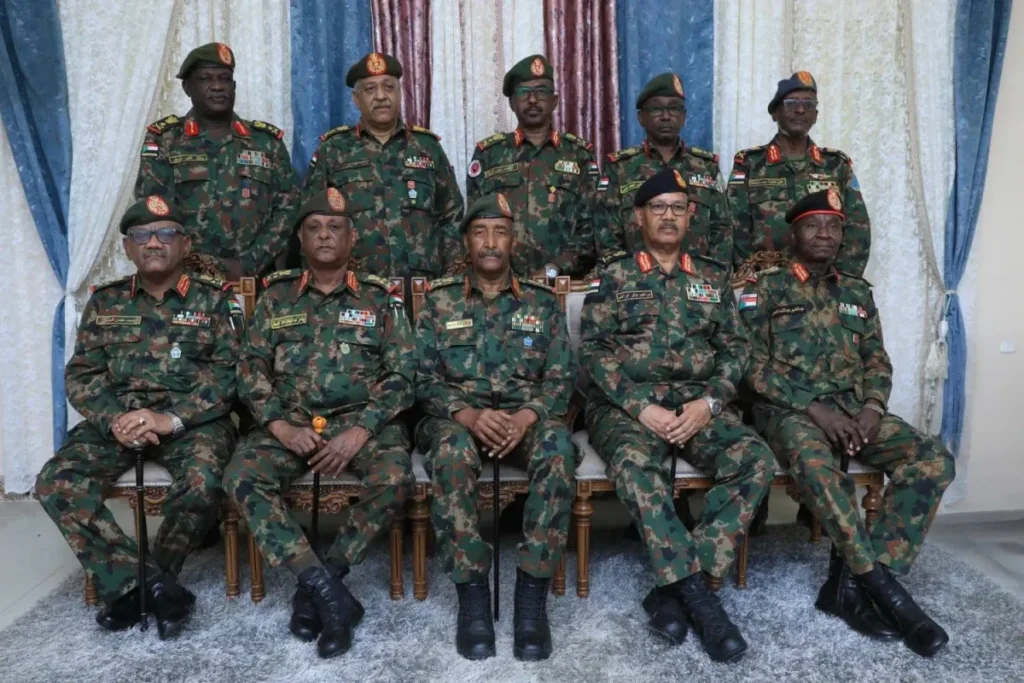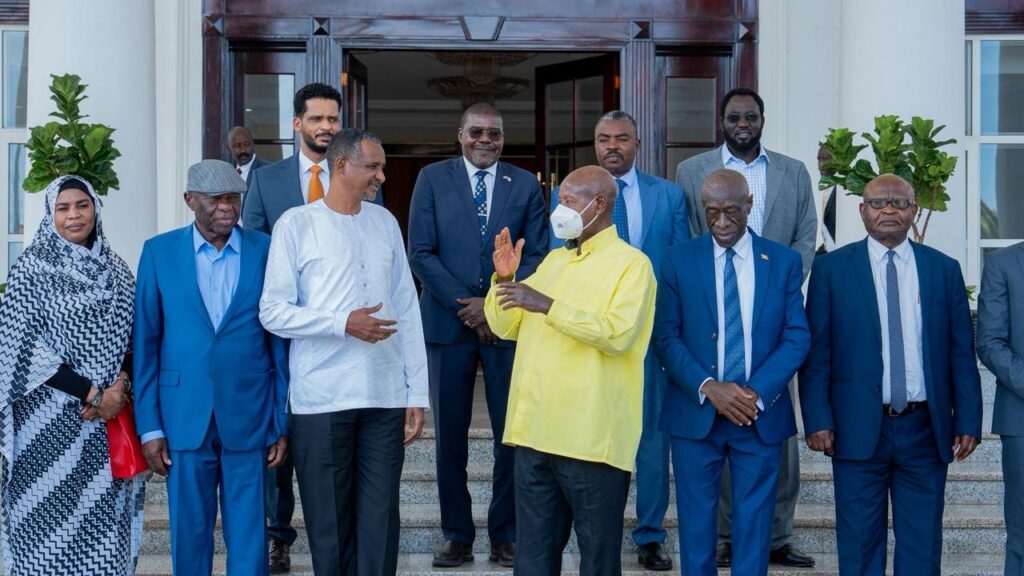
A raft of recent orders by SAF chief Abdel Fattah al-Burhan has ignited fresh turmoil inside the SAF, with leaked accounts alleging that Islamist-leaning officers convened clandestine meetings to reject his new appointments and retirements.
The moves—which installed a new General Staff, retired a slate of senior officers, and placed allied auxiliaries under military law—were presented by Burhan’s camp as internal housekeeping. But analysts say the timing and scope point to a bid to tighten personal control and manage loyalties amid a grinding war and rising external pressure.
Military analyst Walid Izzeldin argued the changes are less institutional reform than “fine-tuning of loyalties,” keeping top commanders directly answerable to Burhan. Political analyst Hatem Taha said sidelining figures under international sanctions also aims to burnish the SAF’s image while rebalancing internal power.
Activist Mujahid al-Bushra said the latest retirements touched more than 150 officers he described as aligned with the Islamist current opposed to Burhan and to Sudanese Islamic Movement secretary-general Ali Karti. He claimed those officers are linked to factions around Nafi Ali Nafi and Ibrahim Mahmoud, two senior figures from the dissolved National Congress Party.
According to al-Bushra, members of the Nafi/Mahmoud camp met secretly on Sunday, 17 August, in Kassala at the home of pilot battalion emir Hisham Shakkai, where they rejected Burhan’s selections as a win for Karti’s faction. He said the meeting agreed to submit a protest memorandum in the name of “Kata’ib al-Barq al-Khatif wal-Tayyareen wa Mohamed Abdallah Khalafallah,” objecting to the retirement of officers including Nasr al-Din, Hassan, Osama and Mohamed Abdallah. Participants accused Burhan of purging any officer who might threaten his position. Al-Bushra added that both Burhan and Karti saw signs of a counter-move early and took pre-emptive steps against officers loyal to Nafi’s group.
Despite the breadth of the shake-up, observers say it does not signal a doctrinal overhaul. Instead, it underscores an ongoing strategy to consolidate Burhan’s personal authority—while leaks about Islamist officers’ secret meetings point to deepening fissures that could widen if purges continue.




